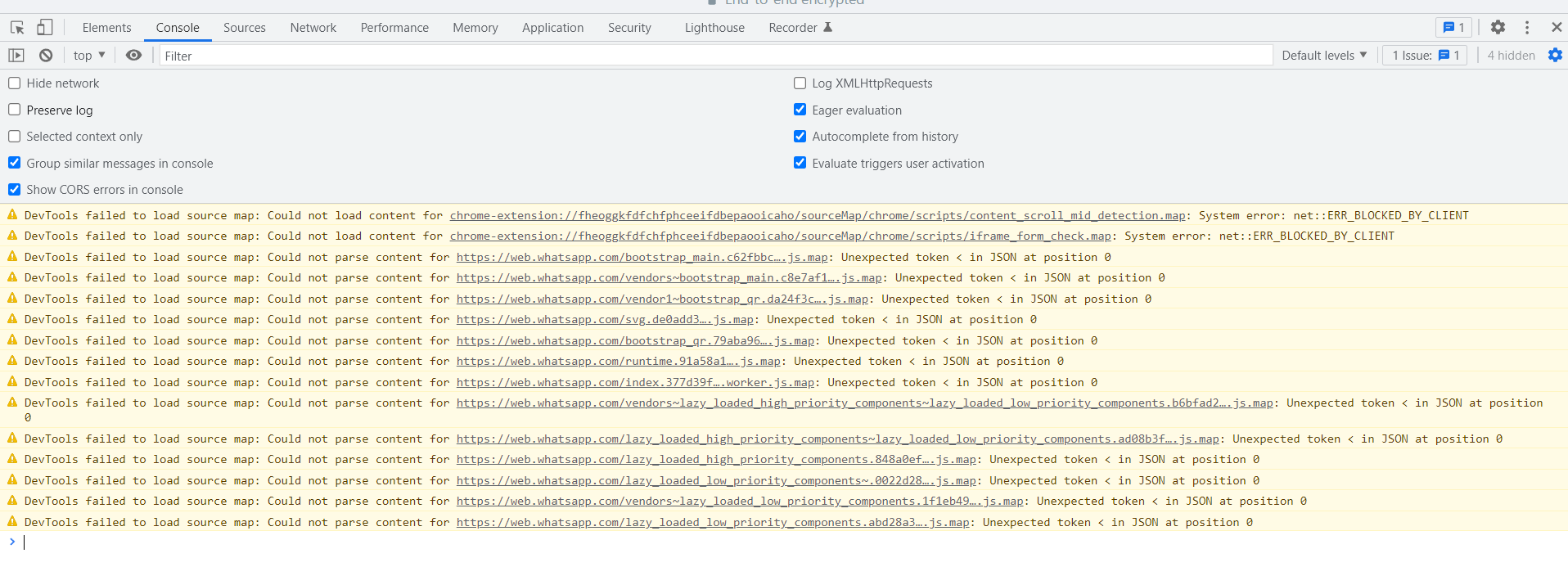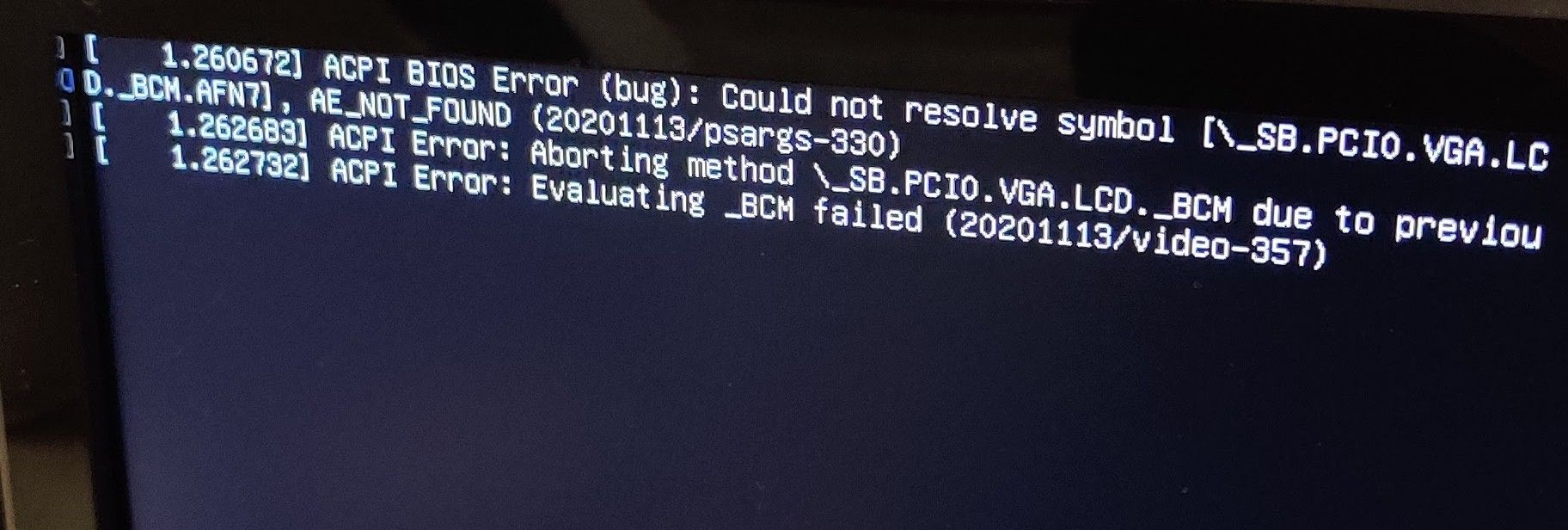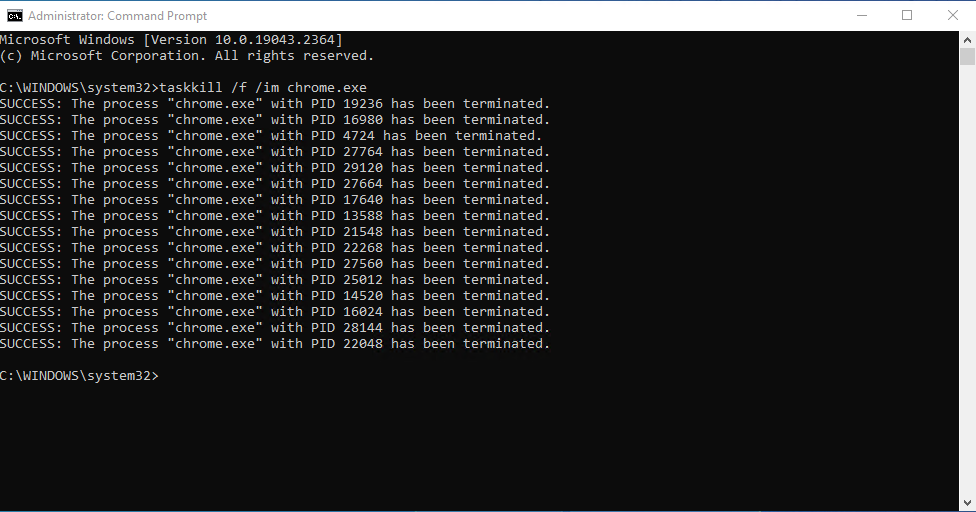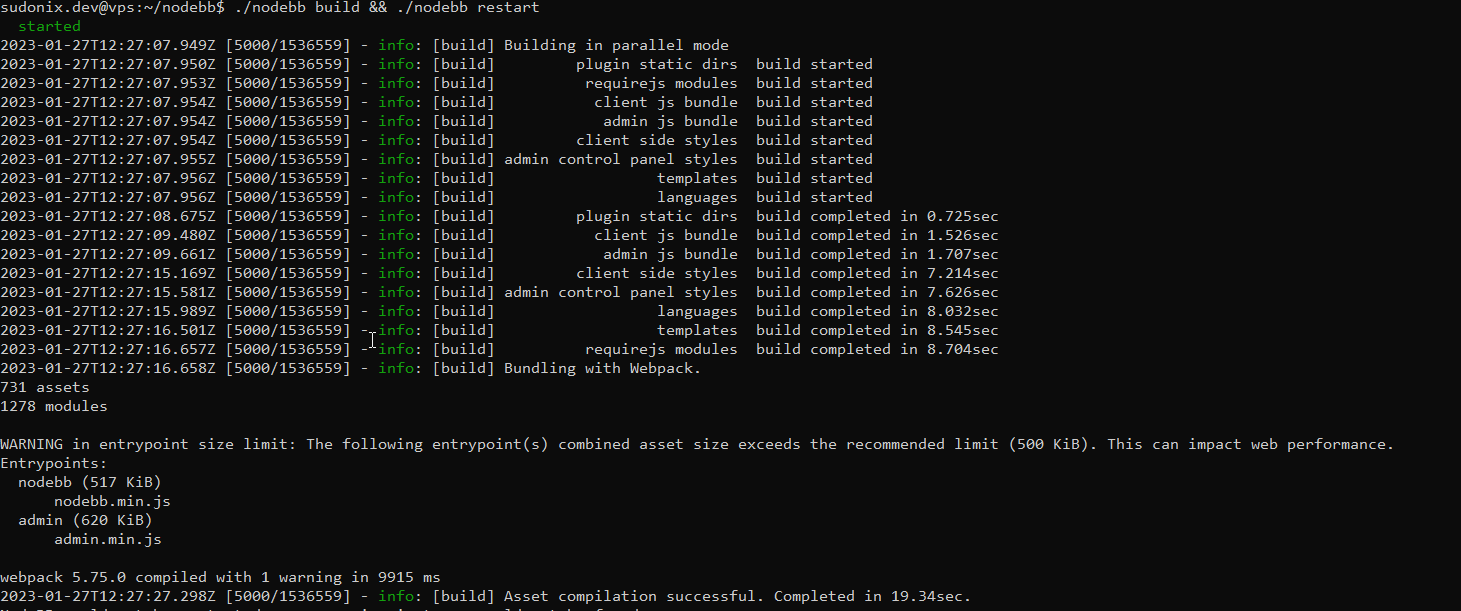Windows 11 doesn't support AMD processors...
-
How unlike Microsoft to completely alienate a significant portion of the gaming PC market by rendering thousands of AMD based processors incapable of running Windows

Personally, I run Windows from home but only for work purposes (integration). Aside from that, I primarily use KDE Neon so couldn’t care less what Micro$oft do in terms of Windows 11, but, I am curious about how this impacts others.
Interested in starting a conversation - particularly as support for Windows 10 ends in 2025. Sounds like light years away, but we’re already rapidly approaching the second quarter of 2022. Will you buy a new system, or defect to Linux ?

Here’s my system
-
How unlike Microsoft to completely alienate a significant portion of the gaming PC market by rendering thousands of AMD based processors incapable of running Windows

Personally, I run Windows from home but only for work purposes (integration). Aside from that, I primarily use KDE Neon so couldn’t care less what Micro$oft do in terms of Windows 11, but, I am curious about how this impacts others.
Interested in starting a conversation - particularly as support for Windows 10 ends in 2025. Sounds like light years away, but we’re already rapidly approaching the second quarter of 2022. Will you buy a new system, or defect to Linux ?

Here’s my system
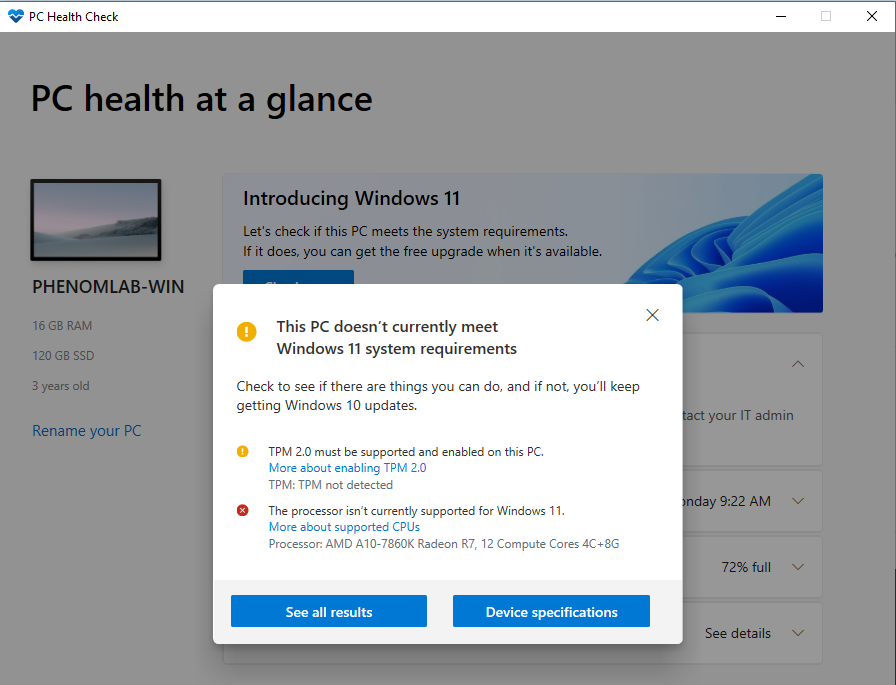
@phenomlab said in Windows 11 doesn't support AMD processors...:
How unlike Microsoft to completely alienate a significant portion of the gaming PC market by rendering thousands of AMD based processors incapable of running Windows

Personally, I run Windows from home but only for work purposes (integration). Aside from that, I primarily use KDE Neon so couldn’t care less what Micro$oft do in terms of Windows 11, but, I am curious about how this impacts others.
Interested in starting a conversation - particularly as support for Windows 10 ends in 2025. Sounds like light years away, but we’re already rapidly approaching the second quarter of 2022. Will you buy a new system, or defect to Linux ?

Here’s my system
How strange to alienate users?
 .
.I’d switch to Linux anyway, it’s just unfortunate that the mass market comes geared with Windows OS products and the only way to chance them ( and I could be wrong) is to completely delete the windows OS and boot Linux or dual boot so you have the option of both?
-
@phenomlab said in Windows 11 doesn't support AMD processors...:
How unlike Microsoft to completely alienate a significant portion of the gaming PC market by rendering thousands of AMD based processors incapable of running Windows

Personally, I run Windows from home but only for work purposes (integration). Aside from that, I primarily use KDE Neon so couldn’t care less what Micro$oft do in terms of Windows 11, but, I am curious about how this impacts others.
Interested in starting a conversation - particularly as support for Windows 10 ends in 2025. Sounds like light years away, but we’re already rapidly approaching the second quarter of 2022. Will you buy a new system, or defect to Linux ?

Here’s my system

How strange to alienate users?
 .
.I’d switch to Linux anyway, it’s just unfortunate that the mass market comes geared with Windows OS products and the only way to chance them ( and I could be wrong) is to completely delete the windows OS and boot Linux or dual boot so you have the option of both?
@JAC Virtually all Linux distro’s allow you to live boot meaning you could easily spend a day testing everything to ensure you’re happy before actually installing it without even touching your existing operating system.
-
the only feature I want from windows 11 is running android apps

i know we can run apps using emulators but it would be a nice feature to have which is built by windows.
-
the only feature I want from windows 11 is running android apps

i know we can run apps using emulators but it would be a nice feature to have which is built by windows.
@Hari interesting. Why would you want to run Android apps on windows ?
-
For me Windows is just for gaming and for my Work.
Otherwise, Manjaro is very good

-
@DownPW said in Windows 11 doesn't support AMD processors...:
For me Windows is just for gaming and for my Work.
Amen to that !!

@DownPW said in Windows 11 doesn't support AMD processors...:
Otherwise, Manjaro is very good
Tried Manjaro, but couldn’t get on with it. Not sure why, but it just didn’t click with me.
-
for me the fact that it’s a rolling release means a lot to me and the fact that it’s also based on Arch.
But I understand, when you don’t like it, you don’t like it

-
for me the fact that it’s a rolling release means a lot to me and the fact that it’s also based on Arch.
But I understand, when you don’t like it, you don’t like it

@DownPW KDE Neon is also a rolling release

-
Ha ha great news.
I didn’t know that KDE released their own distibution

EDIT:
However, I just read that it is based on Ubuntu. And that bothers me a bit.
-
Ha ha great news.
I didn’t know that KDE released their own distibution

EDIT:
However, I just read that it is based on Ubuntu. And that bothers me a bit.
@DownPW It’s not their own as they use Ubuntu / Debian as the back-end, but it is still a rolling release nonetheless.
-
@phenomlab we use this app called WhatsApp Business and it has over 50k conversations and the web version won’t load et al and takes forever to load. recently they have added this featured called multi-login now it takes 5min to load but it’s still buggy … it’s better to run the android app in windows or use chrome book or something to handle such a number of conversations. the client (a non-profit organization) is
not interested to opt for WA API services. if this number grows to 1 lack or 2 lack conversations the situation will be un imaginable. -
@phenomlab we use this app called WhatsApp Business and it has over 50k conversations and the web version won’t load et al and takes forever to load. recently they have added this featured called multi-login now it takes 5min to load but it’s still buggy … it’s better to run the android app in windows or use chrome book or something to handle such a number of conversations. the client (a non-profit organization) is
not interested to opt for WA API services. if this number grows to 1 lack or 2 lack conversations the situation will be un imaginable.@Hari That’s more of software design flaw in my view, and not something you should fix by natively running Android apps in Windows. If the Web version of WhatsApp doesn’t work, then this sounds more like some sort of GEO block. Are you able to provide any console errors that appear when connecting ?
-
@Hari That’s more of software design flaw in my view, and not something you should fix by natively running Android apps in Windows. If the Web version of WhatsApp doesn’t work, then this sounds more like some sort of GEO block. Are you able to provide any console errors that appear when connecting ?
@phenomlab we are okay with it at this moment but this is what i see
@phenomlab said in Windows 11 doesn't support AMD processors...:
GEO block
true when i load using CF VPN it loads fastly
Hello! It looks like you're interested in this conversation, but you don't have an account yet.
Getting fed up of having to scroll through the same posts each visit? When you register for an account, you'll always come back to exactly where you were before, and choose to be notified of new replies (ether email, or push notification). You'll also be able to save bookmarks, use reactions, and upvote to show your appreciation to other community members.
With your input, this post could be even better 💗
RegisterLog in
